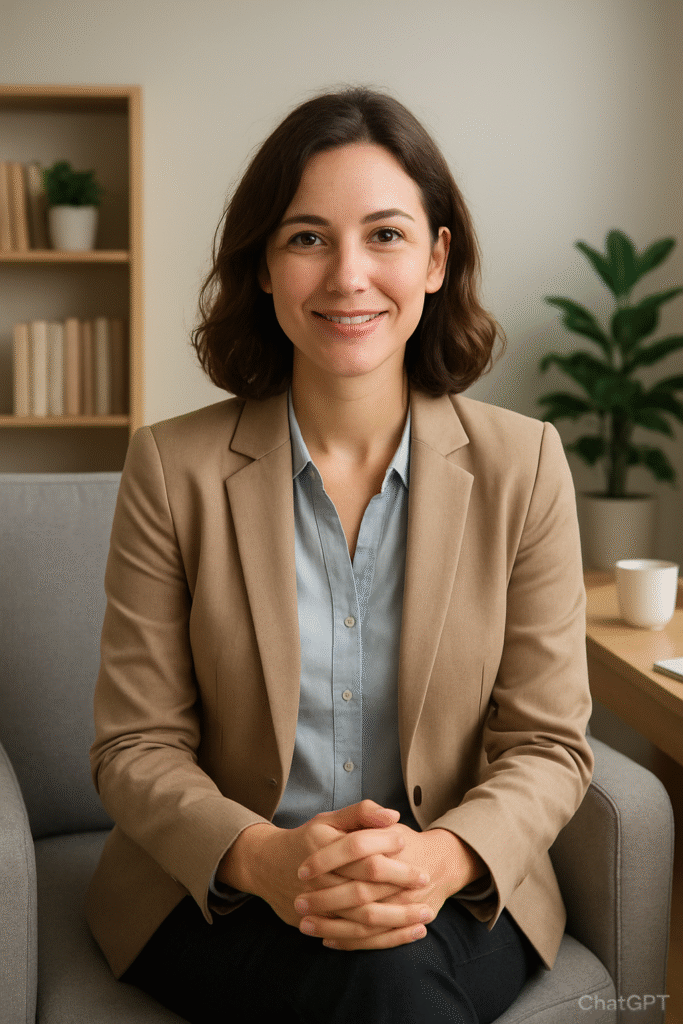Marriage counseling near me offers practical support to couples seeking to improve communication, resolve conflicts, or strengthen their relationship. Many local therapists provide both in-person and online options, making access to professional help easier than ever. Finding a qualified marriage counselor nearby means couples can receive tailored strategies that address their unique challenges and foster healthier connections.
Couples therapy can address a wide range of issues, from communication breakdowns to emotional disconnects. Professional counselors engage both partners, helping them develop skills to navigate conflicts constructively and rebuild trust. By choosing a counselor close to home, couples benefit from convenience and the ability to attend regular sessions that fit their schedules.
With a growing number of therapists specializing in marriage and couples therapy, chances are there are multiple options available nearby. Whether looking for individual or joint sessions, in-person or remote, couples can find experienced support to meet their needs and work toward a stronger partnership.
What to Expect From Marriage Counseling Near Me
Marriage counseling near you typically offers tailored approaches to improve communication, resolve conflicts, and rebuild trust. It often includes different types of services designed to address specific issues couples face. The goals of counseling can vary but usually focus on strengthening the relationship and finding practical solutions.
Benefits of Local Marriage Counseling
Local marriage counseling provides easier access to regular sessions, allowing couples to maintain consistency in their efforts. Being nearby reduces travel stress, making it simpler to fit therapy into busy schedules.
Counselors familiar with the cultural and social context of the area can offer relevant advice that fits the couple’s lifestyle. Additionally, local therapists often have connections to other community resources like support groups or family services. This proximity can enhance the overall support network available to couples.
Types of Counseling Services Available
Marriage counseling can include individual sessions, joint couples therapy, or a combination of both. Some therapists also offer online or teletherapy options for convenience.
Common approaches include cognitive-behavioral therapy (CBT), emotionally focused therapy (EFT), and communication skills training. These methods help couples understand patterns, express emotions clearly, and develop healthier interaction habits.
Some practices specialize in mediating specific issues such as infidelity, parenting challenges, or financial stress. It’s important to choose a service that matches the couple’s specific concerns and preferences.
Common Goals Addressed in Sessions
Counseling sessions focus on improving communication skills to reduce misunderstandings and conflict. Couples work to identify and change destructive patterns of behavior that harm their relationship.
Building or rebuilding trust is a frequent priority, especially after incidents like betrayal or long-term distance. Enhancing emotional intimacy and reconnecting on both physical and emotional levels are also common goals.
Many couples seek guidance on managing external stresses such as parenting or financial pressures. The overall objective is to create a healthier, more supportive partnership with concrete steps for the future.
How to Choose the Right Marriage Counselor Locally
Finding a marriage counselor nearby involves assessing their professional background, areas of focus, and how easy it is to access their services. Attention to these factors ensures a better fit for the couple’s specific situation and goals.
Credentials and Qualifications
A qualified marriage counselor should hold relevant licenses such as LMFT (Licensed Marriage and Family Therapist) or LMHC (Licensed Mental Health Counselor). These credentials indicate the counselor has met state requirements in education, training, and ethics.
Advanced degrees like a master’s or doctorate in psychology, counseling, or social work are common. Additional certifications in couples therapy or family systems work add credibility.
Verifying that the counselor maintains a current license and belongs to professional organizations improves confidence in their standards. Some may also offer evidence of ongoing education or supervision, which enhances their skills.
Specializations and Experience
Counselors vary in their specialization. Some focus on issues like communication problems, infidelity, or parenting conflicts. Others may have experience in cultural, religious, or LGBTQ+ matters.
Checking the counselor’s years of experience with couples counseling is important. Experienced therapists understand the dynamics of marriage stress and know effective intervention methods.
Reviews, referrals, and consultation calls help judge if the therapist’s expertise matches the couple’s unique challenges. Couples should prioritize professionals familiar with their specific needs and who use evidence-based approaches.
Location and Accessibility
A counselor’s physical location affects how easily couples can attend sessions. Proximity reduces travel time and increases regular attendance likelihood.
Consider the counselor’s office setting, parking availability, and public transport options. Some therapists offer online or hybrid sessions to increase flexibility.
Insurance acceptance and fee transparency are critical. Couples should confirm the counselor’s rates, payment methods, and if their insurance plan covers services to avoid surprises.


